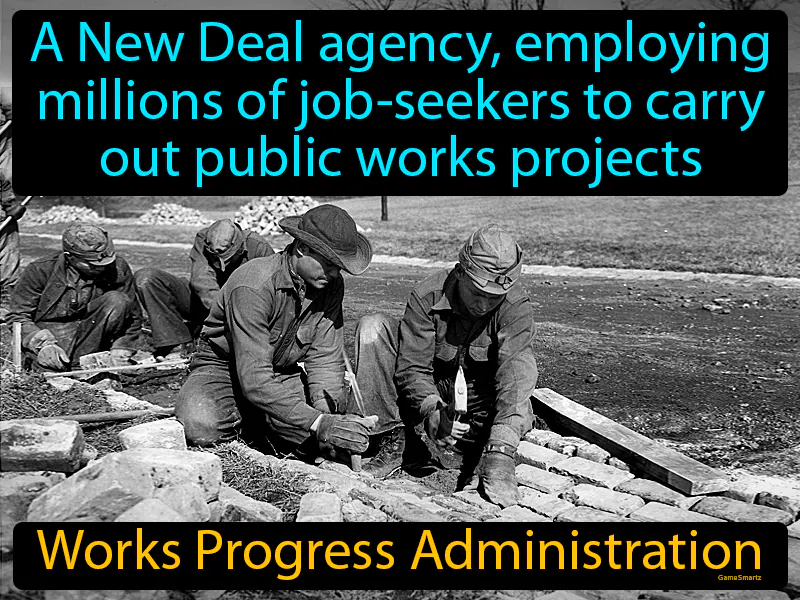Works Progress Administration

The Works Progress Administration (WPA) was crucial during the Great Depression because it provided jobs to millions, helping families survive and stimulating the economy. It highlighted the idea that government can play a role in creating jobs and supporting citizens during tough times, a concept still debated today. The WPA also emphasized investing in infrastructure, as workers built roads, schools, and parks, which are still used by communities. Today, the discussion about government involvement in job creation continues, especially during economic downturns. For example, when governments fund infrastructure projects, it can create jobs and improve facilities, impacting daily life by making commutes easier or schools better.
Practice Version

Works Progress Administration: A New Deal agency, employing millions of job-seekers to carry out public works projects. Works Progress Administration. The Works Progress Administration was a U.S. government program in the 1930s that created jobs during the Great Depression by building public projects like roads and schools.